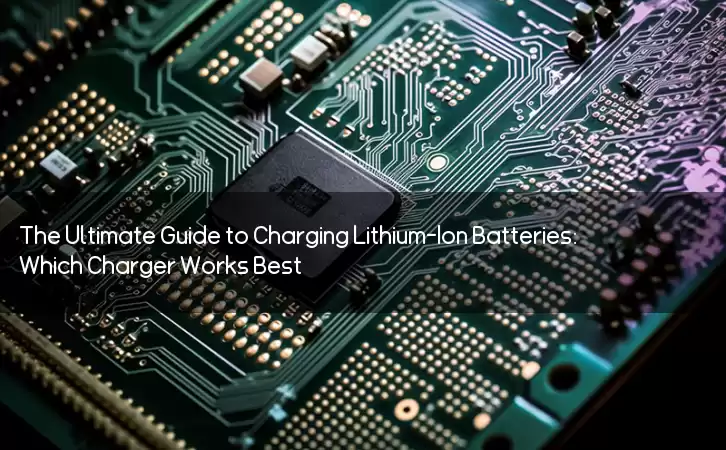Information Center
The Ultimate Guide to Charging Lithium-Ion Batteries: Which Charger Works Best?
Published:2023-08-07 20:35:17 Author:Green WCND Views:27Lithium ion batteries have revolutionized modern electronics by providing high energy density, low self-discharge, and long-life cycles. These batteries are the go-to choice for powering a range of consumer electronics, from smartphones to laptops, electric vehicles to power tools. However, they also require specialized chargers that ensure optimum charging efficiency, safety, and maximizing battery life.

So what chargers work with lithium ion batteries? The answer depends on several factors, including the battery chemistry, capacity, charging current, and voltage. Here is a breakdown of the different types of chargers for lithium-ion batteries.

1. Standard USB Chargers:

These chargers are designed to work with lower capacity lithium-ion batteries found in smartphones and other small electronic devices. They deliver a maximum charging current of 1-2 amps, which is sufficient to keep the batteries topped up. However, they may not be suitable for charging higher capacity batteries or those found in larger devices.
2. Laptop Chargers:
Laptop chargers are specially designed to work with lithium-ion batteries used in portable computers. They typically deliver a charging current of 3-6 amps, which allows for faster charging compared to USB chargers. Laptop chargers are also equipped with safety features like overcurrent protection and thermal regulation to prevent battery damage.
3. Fast Chargers:
Fast chargers are designed to charge lithium-ion batteries quickly, typically in 30 minutes to an hour. They use higher charging currents of 2-4 amps or more, which require specialized charging circuitry and heat dissipation mechanisms. Fast chargers are commonly used in electric vehicles and power tools, where quick charging is essential.
4. Smart Chargers:
Smart chargers are sophisticated charging systems that use advanced algorithms and monitoring to deliver optimum charging performance. They can detect the battery’s state of charge, temperature, and voltage, and adjust the charging current and voltage accordingly. Smart chargers can extend battery life by preventing overcharging, over-discharging, and other forms of battery damage.
5. Wireless Chargers:
Wireless chargers use electromagnetic induction to charge lithium-ion batteries without the need for cables. They are convenient for charging smartphones and other small electronic devices, but their charging rates are slower than wired chargers. Wireless chargers can also generate heat, which may affect battery life.
In conclusion, lithium-ion batteries require specialized chargers that ensure optimum charging performance and safety. The type of charger that works with lithium-ion batteries depends on the battery’s chemistry, capacity, and charging requirements. Standard USB chargers, laptop chargers, fast chargers, smart chargers, and wireless chargers are all designed to work with lithium-ion batteries, and choosing the right one can help maximize battery life and performance.
For golf course managers, ensuring smooth and efficient operations is crucial for providing a memorable experience for golfers and maintaining the reputation of···
A battery tester ensures golf course cart batteries operate efficiently and reduces downtime through the following ways:I. Precise Battery Condition DiagnosisOp···
Battery testers significantly enhance the work efficiency of automotive maintenance technicians through several key ways:I. Rapid Diagnosis of Battery IssuesBat···
Battery testers play a crucial role in automotive battery production lines, significantly enhancing efficiency through highly automated testing processes and mu···





